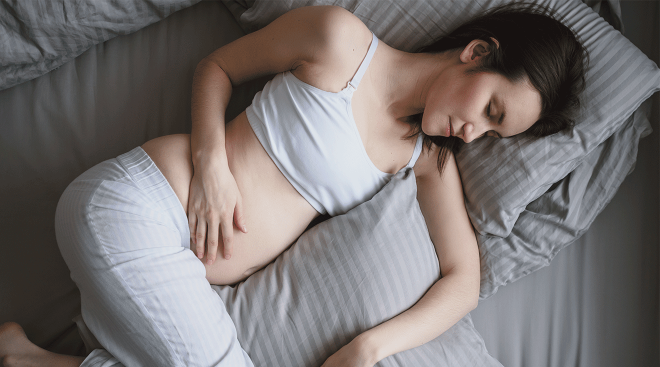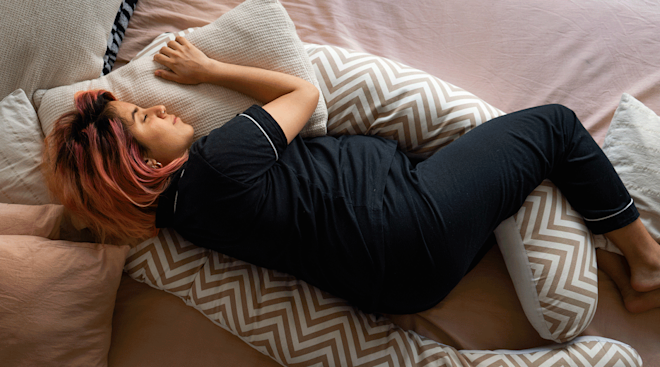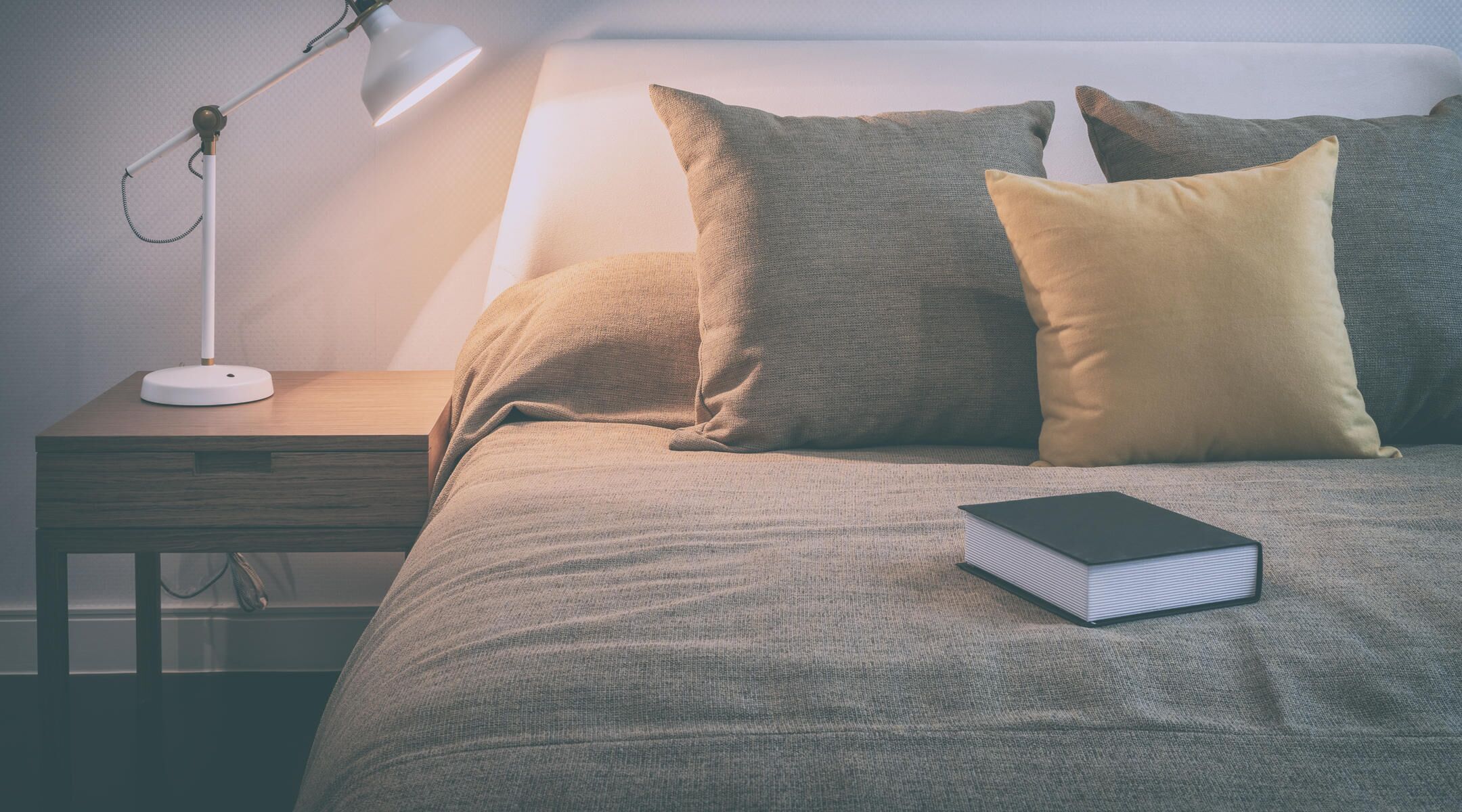9 Reasons You Can’t Sleep When Pregnant (and What to Do About Them)
As a mom-to-be, your body is hard at work and needs all the rest it can get. The cruel joke, of course, is that as pregnancy progresses, it often gets harder and harder to get some quality sleep. Here’s why, and what you can do to catch those ZZZs.
Sorry, but frequent peeing and pregnancy go hand in hand—your baby is practically using your bladder as a pillow right now. You can try to prevent middle-of-the-night bathroom runs by drinking lots of water early in the day and tapering off at night (you still need at least eight glasses total!), but that’s not a no-fail solution. Focus on finding ways to easily fall back to sleep once you’re up, since all that waking can keep you from getting the deep sleep you need. One idea: Use low-wattage hall and bathroom night-lights so things stay dim while you’re up. Bright lights are stimulating and can make you too awake.
We know you’re exhausted, but if you take a power nap during the day, do it before 3 p.m. That way it’s less likely to interfere with the sleep you get at night. (And to prevent that grumpy, just-woke-up feeling, keep the nap around 20 minutes.)
If indigestion (blame the pregnancy hormones!) is keeping you awake, try preventing it by not eating within two hours of bedtime and avoiding spicy foods. It’s safe to take an over-the-counter antacid like Tums (but always double-check the dosing with your OB). More tricks: Try elevating the head of your bed a few inches, and keep stomach acid in its place by sleeping on your left side.
Just can’t settle down once you get into bed? It could simply be because your big belly keeps you from getting comfy, but if it’s particularly annoying, talk to your doctor. According to the National Sleep Foundation, around one in four pregnant women get restless legs syndrome. If you have it, that could be a sign you’re not getting enough iron or folate—both crucial building blocks for your baby—and if that’s the case, you’ll want to increase your intake.
Ugh. All that extra weight of pregnancy, combined with swollen nasal passages, can turn you into a snorer. If that’s what’s keeping you up, try nasal strips (like Breathe Right), which open nasal passages, allowing for better airflow. If this is an ongoing and extreme problem, check in with your doctor to see if a breathing machine called CPAP (continuous positive airway pressure) could help.
Babies in the womb love to move when mom is still, so if it feels like your kid is dancing on your rib cage, there’s not much you can do to stop it. But don’t worry—despite what other people may tell you, just because baby is up all night during pregnancy doesn’t mean they’ll do the same after they’re born. Maybe knowing that will help you rest easier. Try to relax and enjoy the reassurance of baby’s movements.
Thinking about your to-do list, the looming delivery and the new demands of motherhood can keep your mind racing at night. But instead of tossing and turning, get up and take a warm bath or read a book (something light and non-pregnancy-related). Avoid the urge to scroll through Instagram or play online sudoku—the light from the screen can make you feel even more awake, so it could be harder to go back to sleep.
Aching back? A whole bunch of your fellow moms-to-be feel your pain. That’s because as baby grows, the extra weight makes your muscles work harder. Plus, your center of gravity is shifting, making your spine curve more and putting more strain on your back. Putting a pillow between your legs while you sleep can ease the pressure.
Leg cramps are pretty common in pregnancy, especially at night. Elevate your legs as much as you can during the day while you’re sitting. Even better: Ask your partner for a calf massage. After all, the better you sleep, the better they’ll sleep.
Please note: The Bump and the materials and information it contains are not intended to, and do not constitute, medical or other health advice or diagnosis and should not be used as such. You should always consult with a qualified physician or health professional about your specific circumstances.
Plus, More from The Bump:
Tracey Marks, MD, is an Atlanta-based psychiatrist and psychotherapist who has a special interest in how the mind and body connect to shape our quality of life. She is also the author of Master Your Sleep: Proven Methods Simplified.
Stuart Jones, MD, is an ob-gyn with more than 25 years of experience and the chairman Of obstetrics and gynecology at Riverside Methodist Hospital in Columbus, Ohio. He earned his medical degree from Ohio State University College of Medicine & Public Health in 1988.
Learn how we ensure the accuracy of our content through our editorial and medical review process.
Navigate forward to interact with the calendar and select a date. Press the question mark key to get the keyboard shortcuts for changing dates.




















































